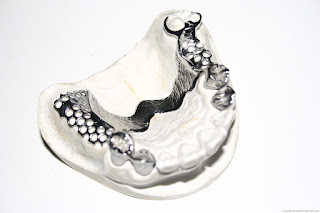Google “men’s health” and you’ll likely
find ways to get those six-pack abs you’ve always wanted.
But there’s more to good health than
having a ripped core and bulging biceps. June is national
Men’s Health Month, so we’ve put
together a list of some of the most common men’s health issues
… and what you can do to prevent or
manage them.
First, have you seen your doctor yet
this year? If not, now is a great time to make an appointment for
your annual wellness visit. Even if you
feel OK and think you don’t need to see your doctor every
year, make the appointment. Seeing your
doctor regularly helps you stay as healthy as you can be.
Use the list below to help you plan for
your sit-down with your doctor.
Your heart
Cardiovascular disease remains the
leading cause of death in both men and women. According to
the American Heart Association, one in
three men in the United States is living with cardiovascular
disease. This can include coronary
artery disease, heart failure, heart attack, stroke and more. The
most common culprit is atherosclerosis,
or hardening of the arteries. Luckily, there are some steps
you can take to keep this from happening.
· Stop smoking: Smoking
can wreak havoc on your heart and blood vessels. Even if you are a
long-time smoker and think the damage is
already done, quitting will help.
· Eat your veggies: Want
to boost your heart health? Add some fresh fruits and veggies to
your diet. If you aren’t a fan, don’t
worry, you don’t have to munch on a stalk of broccoli to
get the heart-healthy benefits. Blend up
a fruit smoothie for breakfast, roast vegetables for
dinner, choose healthy greens like
spinach for your salad — the options are endless
· Get active: You don’t
have to spend an hour at the gym each day to help your heart. Adding
a simple 30-minute walk a day to your
routine can make a big difference. If that seems like a
lot, start small with a 10-minute stroll
around the block.
· Make a plan to lose
weight: If you are overweight or obese, don’t be embarrassed to talk to
your doctor about it. Your doctor can
help you come up with a plan to lose weight safely.
Using some of these other tips, like
eating more fruits and vegetables and walking more, will
help, too.
Your mind
Feeling irritable and tired? Do you toss
and turn at night and then can’t get out bed in the morning?
Have you lost interest in your favorite
activities? If you recognize these feelings in yourself or
someone you love, don’t ignore them.
These are just a few of the symptoms of depression, and
according to the National Institutes of
Mental Health, men often don’t recognize when they need
help.
Not only are men less likely to
recognize when they are depressed, but also they are less likely to
seek help when they realize they might
need it.
If you are struggling, help is out
there. If you don’t know where to turn, start with your doctor. Your
doctor can help you find someone for you
to talk to and can set up a treatment plan for you. If you
are looking for a mental health
professional in your plan’s network, click here.
Depression is a serious health concern.
If you or someone you know are in crisis or having thoughts
about suicide, get help now. You don’t
need to feel embarrassed or down about yourself, thinking
you should be able to deal with it. Many
men have the same emotions as you. But you don’t have to
face these thoughts on your own. Call
your doctor or go to the hospital.
Tell your doctor: If you are dealing with depression or have
thoughts about suicide. Your doctor will
help you get the care you need to feel
better.
Your body
Just as you keep an eye on the gas gauge
and thermostat in your car, it’s important to track these
numbers when it comes to keeping your
body in good working order.
· Blood
pressure:
High blood pressure can raise your risk for developing heart disease. If you
are
under 65, your blood pressure should be
120/80. High blood pressure is diagnosed after you have
several readings where your blood
pressure is 140/90 or higher. If you are over 65, your blood
pressure may be a little higher and this
could be OK. Blood pressure changes as you get older
because blood vessels are not as elastic
as they were when you were young.
· Cholesterol: Too much cholesterol
in your blood can lead to blockages in your arteries. Your
doctor will want to do blood tests to
measure your cholesterol and make sure it is in a healthy range.
Your total cholesterol should be about
200 mg/dL or lower. Your doctor will measure your levels of
specific types of cholesterol, too.
o HDL (good cholesterol): 40 mg/dL for a
man
o LDL (bad cholesterol): 100 mg/dL or
lower
o Triglycerides: 150 mg/dL or lower
· Blood
sugar:
Your doctor also will want to test your blood sugar to make sure you are not at
risk
for Type 2 diabetes. If you have Type 2
diabetes or at risk, your doctor also will set up a plan to treat
or prevent the disease. Your blood sugar
levels should be:
o Less than 100 mg/dl (fasting, meaning
nothing to eat for 8 hours or more)
o Less than 140 mg/dl (non-fasting)
· BMI: It’s important to
have your Body Mass Index checked each year to determine if you are
overweight or obese. Being overweight or
obese can lead to health problems, like heart disease,
diabetes and high blood pressure. Your
doctor will calculate it for you. Here are the BMI ranges:
o Underweight (BMI less than 18.5)
o Normal weight (BMI between 18.5 &
24.9)
o Overweight (BMI between 25.0 &
29.9)
o Obese (BMI 30.0 and above)
Your Sex Life
Erectile dysfunction affects men of all
ages, and if you are facing this, you should definitely tell your
doctor. First, your doctor can help
treat your symptoms so you can feel more confident about your
sex life. And second, there could be an
underlying health issue causing the problem, like high blood
pressure or diabetes.
There are a number of treatments that
can help, and your doctor can help you choose what’s right
for you. Also, making some lifestyle
changes, like stopping smoking and curbing alcohol use, could
make a difference, too.
Other factors may be affecting your sex
life, too. As men get older, their testosterone levels often
drop. This can lead to a lower sex drive
and other symptoms, such as depression and fatigue. If you
are experiencing these symptoms, ask
your doctor about it. Your doctor may want to check your
testosterone levels. If they are low,
your doctor will be able to set up a plan for you to help with your
symptoms.
Don’t be afraid to ask your doctor about
any problems you are experiencing. Remember: Your
doctor is there to help you.
Tell your doctor: If you are experiencing low sex drive or
erectile dysfunction, ask your doctor for
advice. There are treatments that can help






